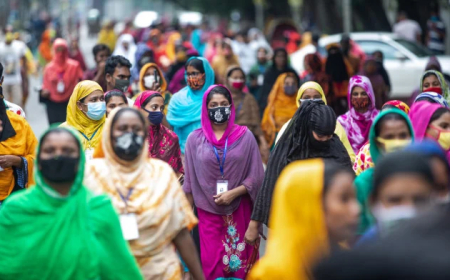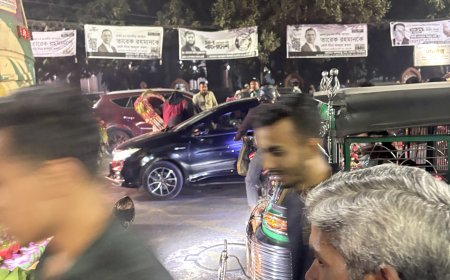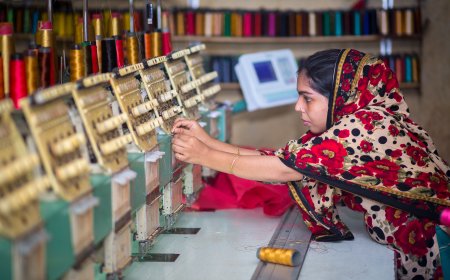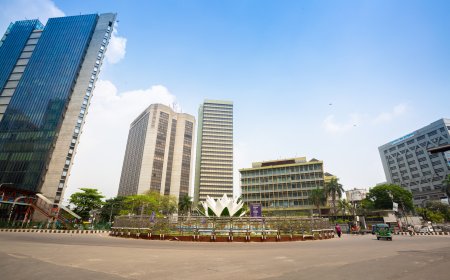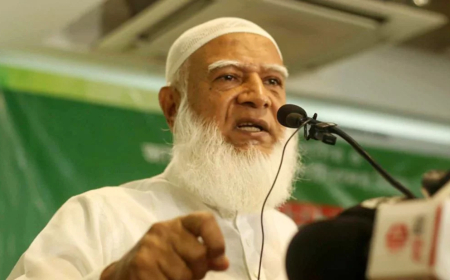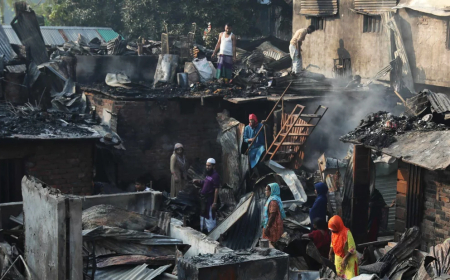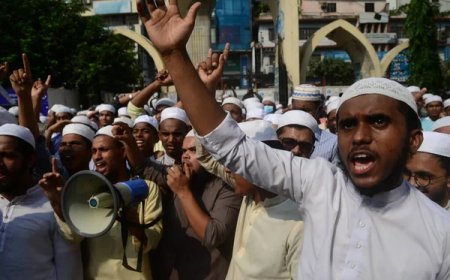Shut Down Bhasan Char Now
Bhasan Char is a symbol of the corruption and cronyism of the last regime, a so-called humanitarian scheme that served only to line the pockets of the powerful. The Interim Government can do the right thing by making a clean break from Sheikh Hasina's most disastrous Rohingya policy.
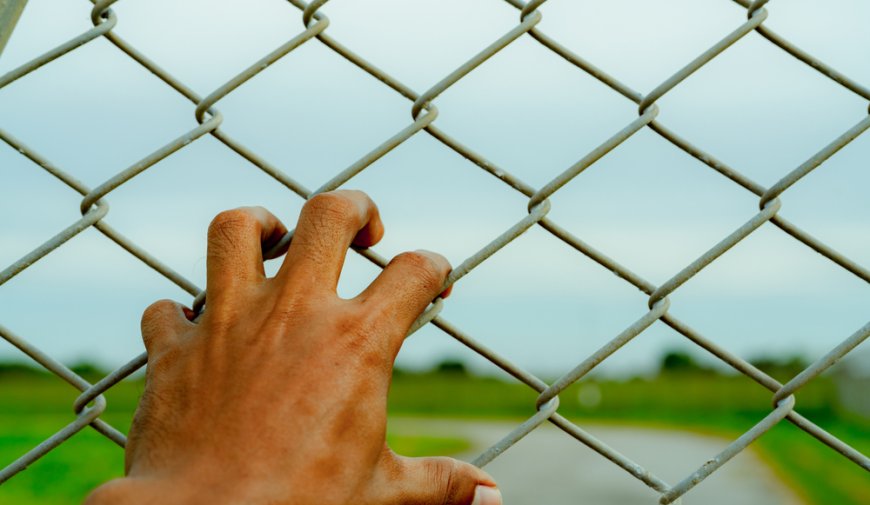
On May 31, a trawler carrying 39 people from Bhasan Char capsised en route to the mainland.
As of writing, three have been confirmed dead, several are receiving medical treatment, and others remain missing. On board were Rohingya refugees, a seriously ill patient, and police escorts.
This was no accident: it was the inevitable consequence of warehousing vulnerable people on an isolated, flood-prone island in the Bay of Bengal.
Bhasan Char must be shut down.
A Death Trap, Not a Safe Haven
Bhasan Char is a remote silt island that floods during monsoons and lies in the path of cyclones. The ponds dotting the island are unfenced, and children have drowned in them.
Healthcare is minimal. Mental health issues are spiralling. There have been suicides in the camp. People live in fear, isolation, and hopelessness.
In August 2021, another boat carrying refugees trying to flee the island capsized. At least 11 people died, most of them women and children. Dozens more went missing at sea.
In fact, there have been multiple boat sinkings involving people fleeing Bhasan Char, with several incidents resulting in fatalities and disappearances.These were people so desperate that they risked their lives to escape what has been described as a “prison island.” The truth is simple: Bhasan Char is not fit for human habitation.
No Freedom, No Future
Despite government claims, relocation to Bhasan Char has not been voluntary. Rohingya were misled, coerced, or pressured to move. Once on the island, they cannot leave freely.
Escaping isn’t just difficult -- it’s policed by everyone. Villagers and ship-breaking-yard guards along the Chattogram coast now act as informal border patrols: they detain exhausted Rohingya who wash ashore, lock them in sheds, then call the police. Officials frame these
vigilante hand-overs as “rescuing trafficking victims,” but the reality is forced return to the island.
In this climate, even desperate families are cast as security threats, yet thousands still slip away. The population has fallen from 36,000 to about 23,000, EU officials confirm a quiet, rolling vote of no-confidence in the island prison.
Under the former prime minister, several ARSA members accused of murdering Rohingya leader Mohibullah were quietly shipped to Bhasan Char -- placing survivors of ARSA violence in the same barracks as their attackers. The island’s “security” thus imported fresh fear instead of protection.
There are no jobs. No formal schools that award recognized certificates. No access to higher education. Healthcare is threadbare. When a diarrhoea outbreak hit, there weren’t enough supplies. And while a sea ambulance is said to exist, no such emergency service is
operational -- another fiction that endangers lives. When a mental health crisis emerges, there is no real support.
Refugees live in concrete barracks with no way to earn a living or plan for the future. Movement is restricted. Dignity is denied. The hopelessness has led to drug use, sex work, and a surge in suicides and attempted suicides inside the camp.
As MSF’s Arunn Jegan argues, the current aid system “is no longer fit for purpose” -- it locks refugees into dependency, fuels crime, and sustains a false economy inside the camps. One refugee described it best: “It’s like being in jail.”
Built on Corruption
Bhasan Char was never about protecting Rohingya. It was about profit. The Armed Forces Division (of the former Prime Minister’s Office) once claimed Bhasan Char would be “one of the finest camps in the globe for displaced nationals.” That absurd boast has since been scrubbed from its website - but the Wayback Machine remembers.
The UK-based firm MDM Architects even dubbed the camp a ‘paradise.’ That’s an insult to those trapped there. Asked why ponds where children drowned were never fenced, its principal architect, Ahmed Mukta, told me he couldn’t speak without Navy permission.
The island’s development, under the Ashrayan-3 project, followed the same script as many of the Awami League’s so-called development schemes -- grand projects to line the pockets of the powerful.
Billions of taka were spent. Contracts went to politically connected firms. Meanwhile, an eight-crore-taka VIP guesthouse called Meghna was built for foreign dignitaries -- none of whom ever stayed there. Meanwhile, refugees on the island live without privacy, without
freedom, and without hope.
The island became a revenue stream: for contractors, for cronies, and for the security forces who built it, patrol it and control it. Architect and environmentalist Iqbal Habib calls Bhasan Char “a complete waste of public money, as if it was done just to show that something was done.”
Author, Rohingya expert, and anthropologist Nasir Uddin agrees -- seeing the island, not as a humanitarian solution but as a spectacle of containment. Like other white elephant projects under the Awami League, it was built more for political display than for people. The $350 million spent on this sinking, flood-prone island could have gone to real solutions.
Instead, we got a prison camp branded as progress. The refugees were never the beneficiaries -- they were the excuse.
The entire Ashrayan project is now under formal investigation by Bangladesh’s Anti-Corruption Commission. Allegations include embezzlement, extortion, and the use of substandard materials in housing projects -- many linked to politically connected firms. Investigators are probing the role of former Prime Minister Sheikh Hasina, her family, and senior officials in a network of graft that spans multiple mega-projects. What was meant to be a landmark social welfare initiative has become a symbol of cronyism and collapse.
A Political Opportunity
The interim government, heading to New York on September 30 for high-level talks, has been busy touting a “humanitarian corridor” that outsources responsibility yet again. A far simpler win lies at home: decommission Bhasan Char, break cleanly with Sheikh Hasina’s
containment doctrine, and walk into the UN meetings with the human-rights plaudits Bangladesh sorely needs.
Bangladesh has long been praised for hosting nearly a million Rohingya refugees fleeing genocide in Myanmar. But that generosity cannot excuse locking thousands away on a disaster-prone island. The international community cannot remain silent either. Agencies like UNHCR should stop legitimizing this cruel experiment with aid and silence.
The Rohingya on Bhasan Char must be allowed to leave. They must be reunited with their families in Cox’s Bazar or elsewhere on the mainland. They must be treated as human beings, not surplus populations to be hidden from view.
The boat that sank this week is not an isolated event. It is a warning. It is the consequence of policies that devalue life and turn suffering into opportunity.
Close Bhasan Char now -- before the next storm, the next drowning, the next death.
Shafiur Rahman is a journalist and documentary filmmaker focusing on the politics of refugee management in South and Southeast Asia. He writes the Rohingya Refugee News newsletter.
What's Your Reaction?







